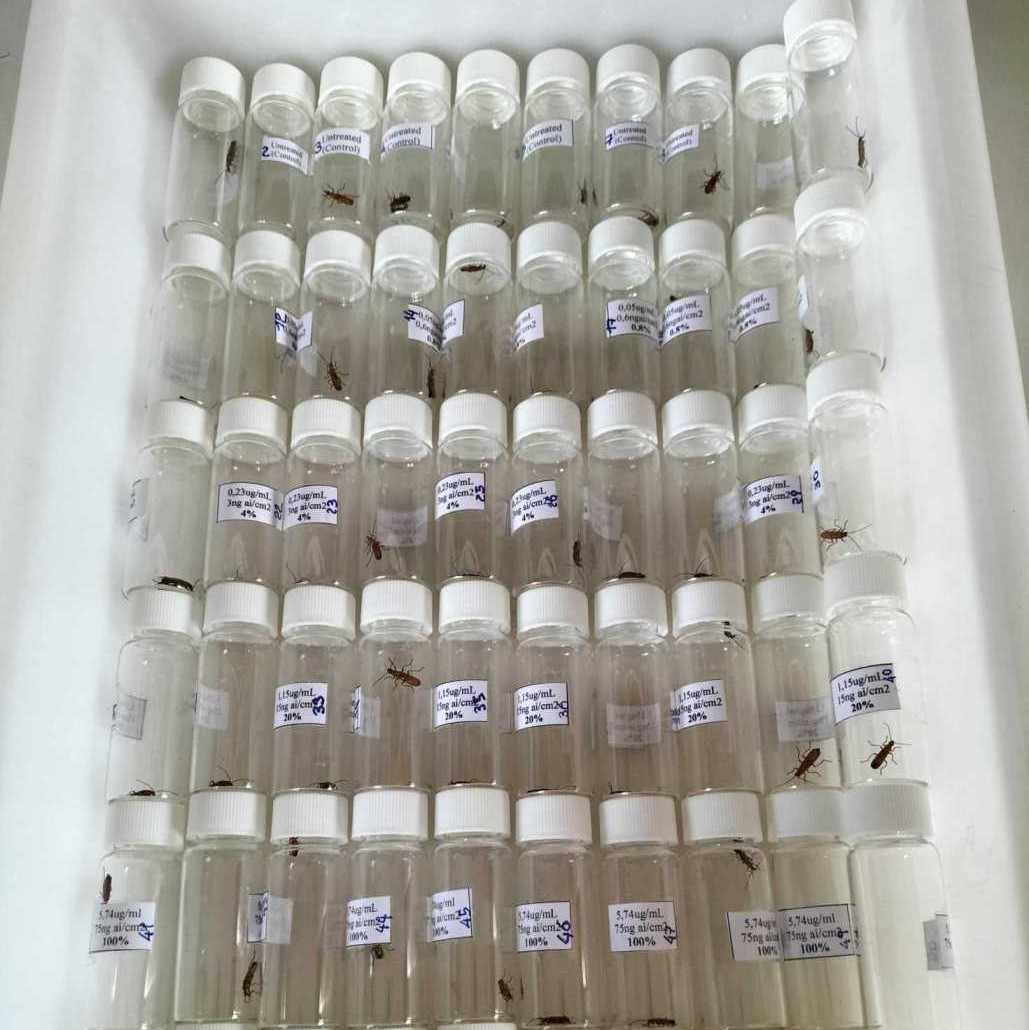A study proves that one of the most used pesticides in the European Union is highly harmful to biodiversity
- The study carried out in five EU countries has had the outstanding participation of the Museum of Natural Sciences of Barcelona and the University of Barcelona
- The pesticide under study, lambda-cyhalothrin, has a devastating effect not only on insects that can damage crops but on those that are around and can be beneficial to agriculture
- The study, recently published in the journal “Science of The Total Environment”, questions the safety of this pesticide and urges a review of risk assessment protocols in order to protect biodiversity
The most recent estimations argue that insect diversity is declining at an alarming rate of 2.5% per year, resulting in the loss of approximately 25,000 species every 12 months. In addition to climate change, habitat loss and other causes, many of which are unknown, experts agree that one of the main reasons for this decline is the massive use of synthetic pesticides in agriculture. This is because these chemicals not only eliminate species that damage crops, but also have a devastating impact on other insects, including those that are beneficial to key plant processes such as pollination, natural pest control and nutrient cycling.
The study led by the Jagiellonian University of Poland, with the prominent participation of the University of Barcelona through the Biodiversity Research Institute and the Natural Sciences Museum of Barcelona, has revealed that lambda-cyhalothrin, an insecticide synthetic widely used in cereal, tuber and fruit crops, could be threatening up to 98% of beneficial insect species in these fields. The research questions the safety of this pesticide and urges a review of risk assessment protocols before approving new compounds in order to protect biodiversity.
Some significant side effects
Lambda-cyhalothrin is a fast-acting pyrethroid, commonly used in the European Union and worldwide to control agricultural pests such as aphids, beetles and moths, as well as mosquitoes, flies and ticks that affect human health. Unfortunately, published results reveal that when applied at the recommended dose, it very negatively affects all insects it comes in contact with. "Lambda-cyhalothrin does not distinguish between pests and beneficial insects for crops and poses a threat to biodiversity", explains Berta Caballero, curator of arthropods at the Museum and co-author of the article.
Thus, the pesticide that is used to eliminate an aphid or a specific fly, would also be killing ladybugs or spiders, which are their natural predators. "We hope that the conclusions of this study will lead to a review and, if necessary, a regulation of the use of lambda-cyhalothrin", says Dra. Caballero.
A comprehensive assessment
To carry out the analyses, individuals of more than 50 different species of insects were collected in agricultural fields representative of various climatic zones in five countries: Portugal, United Kingdom, Germany, Poland and Spain. This wide sampling made it possible to evaluate the effects of lambda-cyhalothrin in animals present in various agricultural ecosystems under different environmental conditions.
The insects caught in crops such as rapeseed, wheat or olive trees were subsequently exposed to increasing doses of the pesticide, with a follow-up for 72 hours. "With only 5% of the recommended dose, half of the species of beneficial insects are affected, a figure that rises to 98% when the full dose is applied", laments José Manuel Blanco-Moreno, researcher in agroecology at the Biodiversity Research Institute of the University of Barcelona and co-author of the study.
This research also calls into question the reliability of the studies used to approve new pesticides, as they are often based on tests with only one species: the honey bee. Despite its importance, this insect is not representative of biodiversity due to its genetic and biological particularities. "The results of this study point to an urgent need to redesign risk assessment procedures incorporating multispecies approaches to protect biodiversity more effectively," concludes Dr. Blanco-Moreno
This research has been funded by the European Union's Horizon 2020 Research and Innovation Program "EcoStack".
Reference article:
Species Sensitivity Distribution (SSD) profiles towards λ-cyhalothrin for key ecosystem service provider (ESP) species across five European countries representing different pedoclimatic zones. Blanco-Moreno JM, Caballero-López B, Cook SM, Foster SP, Frydryszak D, Laskowski R, Ortega-Ramos P, Rasko M, Reichardt P, Sousa JP, Sowa G, Śliwińska-Grochot R, Winkler J. Sci Total Environ. 2024 Sep 23;954:176412. doi: 10.1016/j.scitotenv.2024.176412.
